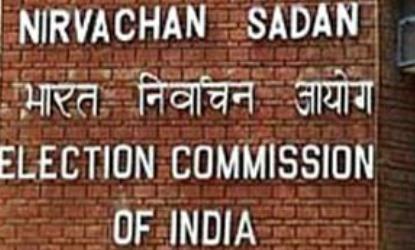
The Chief election Commissioner on sunday (October 1) said that the election commission is committed to free
and fair elections, with special attention given to making voting easy for the common man and increasing the
voting percentage. The Commissioner also said that there is no proposal before the Commission for compulsory
voting. Speaking to reporters in Jaipur, Chief election Commissioner Rajiv Kumar said that the candidates
contesting the elections will have to disclose their criminal records by giving advertisements in newspapers.
Along with this, political parties will also have to explain the reason why the party has selected him as the
candidate. He said that for the first time in Rajasthan, the facility to vote from home will be available for elderly
voters as well as people with 40 percent disability. When asked about compulsory voting, he said, "There is no
proposal for compulsory voting before the election Commission."
There are total 5.25 crore voters in the state
Kumar said initiatives have been taken to increase voting percentage and ease of voting, adding, law enforcement
agencies in the state were given strict instructions to check transportation of liquor and cash in the border areas,
especially at the haryana and punjab border. Are. He said that there are a total of 5.25 crore voters in the state
which include 2.73 crore men, 2.51 crore women and 604 transgenders. He said that 18462 voters are above 100
years of age, 11.8 lakh are above 80 years of age and 21.9 lakh are first-time voters.
There are total 51756 polling stations
During his visit to the state with the members of the Commission, the Commission held several meetings with the
state government officials regarding the election preparations from Friday. The Commission held meetings with
representatives of political parties, Chief Secretary, director General of police, district Collectors and District
Superintendents of police and other officials during the three-day visit. In the elections, 1600 polling centers will
be managed by women, 200 centers will be managed by disabled people and 1600 centers will be managed by
newly appointed youth. Webcasting will also be done in 50 percent of the total 51756 polling stations.




 click and follow Indiaherald WhatsApp channel
click and follow Indiaherald WhatsApp channel